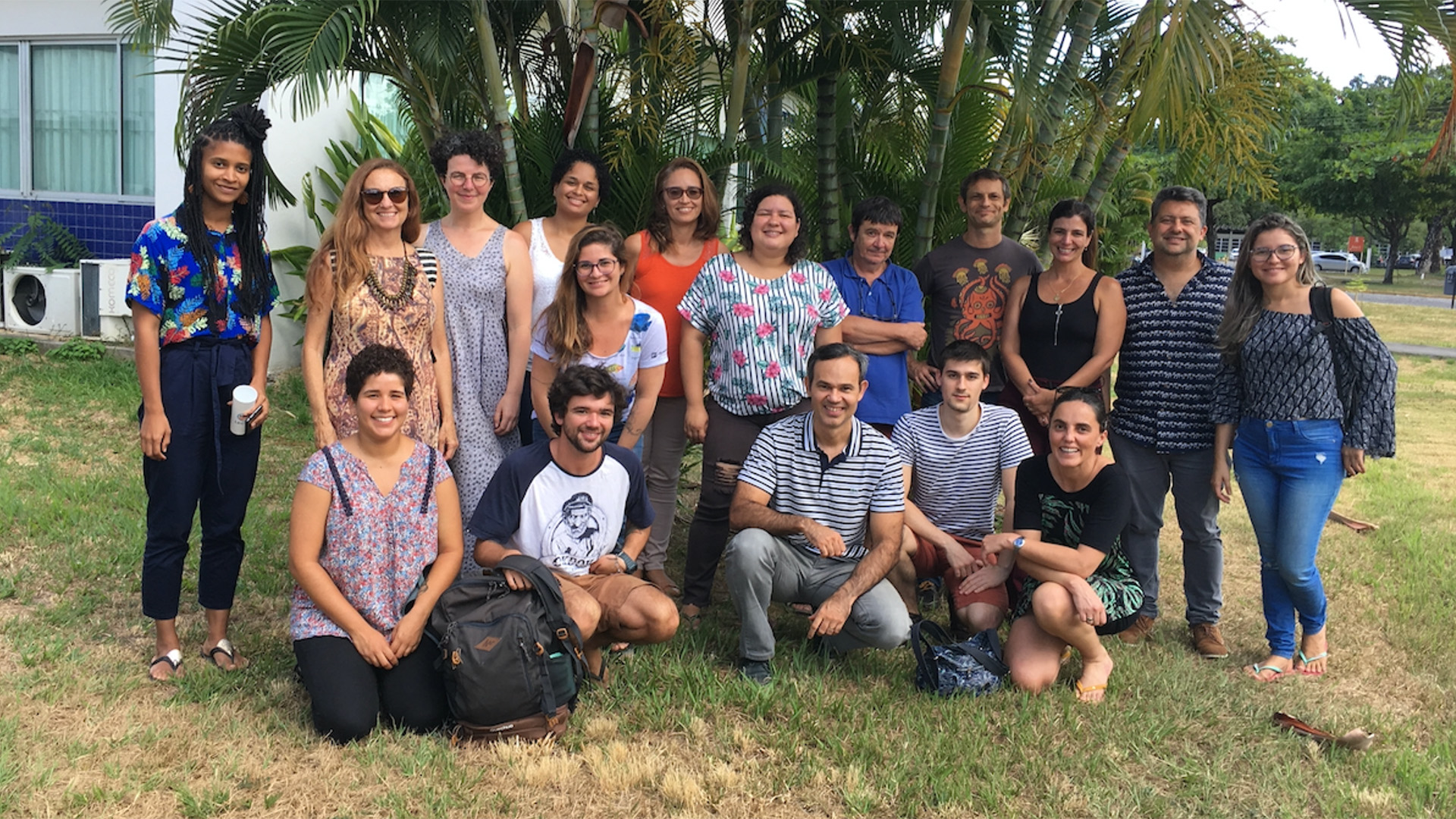
The second interdisciplinary workshop of the PADDLE project took place at the Universidade Federal de Pernambuco UFPE (RECIFE, BRASIL), on November 27 and 28, 2019.
« The good, the beast and the ugly: integrating biodiversity conservation and artisanal fisheries into marine spatial planning while avoiding the risk of ocean grabbing by one of the many users of the space at sea».
Implementing Marine Spatial Planning in tropical countries raises specific and interlinked challenges:
Dealing with the ecological specificities of natural ecosystems in tropical regions
Except for locally enriched areas (e.g. upwelling ecosystems), marine tropical ecosystems are characterised by low productivity and high species richness. More acutely than other ecosystems, their resilience relies on the maintenance of their structural and functional biodiversity. Unfortunately, climate change is expected to challenge this key of resilience : in contrast to temperate and polar regions, which are expected to increase their species abundance richness, tropical ecosystems are expected to suffer from a decline and even extinction of local species. As a consequence, it is of crucial importance for the sustainability of these ecosystems to foster those of the human activities at sea that respect as much as possible the integrity of biodiversity architecture.
Dealing with the specificities of human uses in tropical
Governance weaknesses, legal and political instabilities, stakeholders of unbalanced representations and powers may constitute the basic ingredients of a risk of ocean grabbing. The term « Ocean grabbing » refers to the capturing of control by powerful economic actors of crucial decision-making processes, leading to a preferential access to ressources and/or areas. Traditional small-scale fisheries, which contribute to food security of many tropical countries, may be victim of such process because of the weakness of their representation in decision-making arenas. While the political dimension of this risk is obvious, it may also contribute to an ecological problem. Indeed, traditional, polyvalent, small-scale, artisanal fisheries are probably the fleets most adapted to a balance harvesting strategy. The concept of balanced harvest proposes to distribute a moderate fishing pressure across the widest possible range of species, stocks, and sizes of an ecosystem, in proportion to their natural productivity so that the relative size and species composition is maintained. It has been proposed as a way for fisheries management to achieve the requirements of both the Law of the Sea Convention (LOSC)—to maintain stocks at the level at which they could produce MSY—and the Convention on Biological Diversity (CBD)—to maintain ecosystem structure and functioning. Considering the importance of the integrity of biodiversity architecture pointed out above, balanced harvesting may constitute a pertinent target for fisheries management in tropical regions. In that sense, securing a balanced representation of artisanal fisheries in the marine spatial planning process may contribute to both governance equity and ecosystem resilience.
Dealing with knowledge uncertainty, data gaps and data heterogeneity
Conserving biodiversity architecture, fostering ‘balanced-harvest’ resources exploitation, avoiding ocean grabbing risk are targets that all require a good level of information/data on ressources at-sea, on the spatio-temporal patterns of human uses at sea and on the vision of future scenarios for the sea of the different stakeholders. Yet, data on tropical ecosystems are often heterogeneous, in terms of spatio-temporal coverage and quality, if not deficient. In consequence, there is also a major challenge in setting up tools for the simulation of management scenarios that would be robust to data gap and efficients in representing uncertainty on data.
Because of the specificities of these tropical marine ecosystems, a Marine Spatial Planning Process needs to be tailored-made and adaptive in those regions. The purpose of this workshop will be to illustrate and discuss those three aspects, with the Brazilian Nordeste as a showcase.
